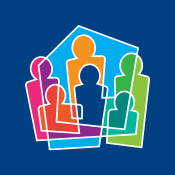Guest Contributor: Jo Szakallas
This article on the importance of internet safety for kids was originally published in January 2020. All relevant statistics and copy have been updated as of April 2022.
More than 90% of children use the internet at home, and while there are many benefits to giving youngsters online access, including improved learning opportunities, it’s crucial that parents take their children’s internet safety seriously. This means proactively taking steps to safeguard kids while they’re browsing online.
Keep your children safe when they’re #Online with these quick tips:Click To TweetBlock inappropriate content
1 in 4 children between the ages of 9 and 17 have reported having a sexually explicit interaction online. Often, these interactions are taking place with people whom the children believe are 18 or older. Sadly, it’s all too easy for kids to stumble across inappropriate interactions or material following an innocent online search or by clicking on an ad. The good news is that you can easily reduce the likelihood of your child coming across this content by setting up parental controls on your broadband and by encouraging the use of safe search engines over traditional ones.
Track online activity
The majority of social media sites have a minimum age restriction of at least 13, as dictated by the Children's Online Privacy Protection Act (COPPA). However, as the sign-up process is typically a tick box exercise, younger children may still gain access. This is a cause for concern as it could lead to your child being harassed.
Cyberbullying is so common that 1 in 3 children report having been directly impacted by it. Teens and children are spending more of their time online, meaning that unless you are actively monitoring their interactions and experiences, there is a chance they will be exposed to activities and comments that might damage their mental health. As a parent, it is important to have a safety measure put in place to track your child's online activity.
Apps such as mSpy and The Spy Bubble can be downloaded so that you can keep an eye on the sites your child is using. If you do discover that social media sites are being used inappropriately, a conversation should be had with your child about why they’re not age-suitable before disabling their accounts together.
Protecting your children as they use the #Internet is a crucial part of parenting in the 21st century:Click To TweetDiscourage oversharing
There is an alarming trend among teens that are old enough to use social media; oversharing. It's such an issue, in fact, that 88% of teens say they feel they share too much of their personal information online. Whether it be posting their cell phone number online, their school name, or their hometown or city, this trend of oversharing is enough to cause concern for parents. It’s also common for them to post pictures and videos of themselves and details of their current location. As a parent, you should actively discourage the sharing of this information as it puts their safety in jeopardy, puts them at risk of their identity being stolen, and could even hinder their future job prospects.
Protecting Your Family Isn't Easy
Keeping your kids safe online is a never-ending job, but it’s also a crucial one that must not be ignored. Thankfully, these tips will ensure your child browses the net securely which will alleviate your worries every time they pick up their smartphone or tablet.
With the internet, parenting can be a tricky task. If you or someone you know are looking for guidance on subjects like the above or additional parenting education, Nebraska Children’s Home Society offers FREE parenting classes to participants. Click here to contact us and learn more.
Related Blogs
How Lifebooks Help Children Understand Their Adoption Journey
Your Go-To Guide for Financial Support When Pregnancy Surprises You
Helpful Links
© 2026 Nebraska Children’s Home Society. Site by Red Branch Media, Inc.

